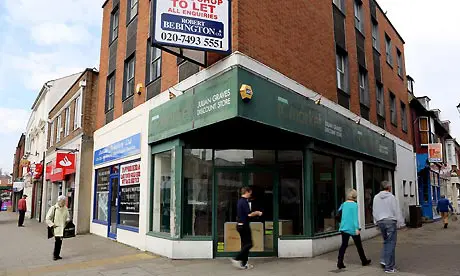As landlords throughout the UK prepare to issue their three-month advance rental demands to shops and businesses, Cranfield is reminding retailers of figures recently released by insolvency body R3, which state 134,000 businesses nationally are struggling to pay their bills on the time. This figure is 24,000 greater than the figure recorded this time last year.
With rent due to be paid on September 25, Cranfield is urging struggling retailers to seek help before they are forced to shut up shop.
Brett Barton, Director at Cranfield Business Recovery explained: “Together with business rates, rent is undoubtedly one of the largest bills that retailers have to pay so this month could be very difficult for them. With the rise of online shopping, retailers have borne the brunt of the recession so if they are beginning to struggle financially, now is the time to seek professional advice.”
There has been a recent glimmer of hope among retailers in the UK, with the British Retail Consortium reporting that sales were up 3.6 per cent in August 2013, compared with a 1.6 per cent increase in the same month the previous year. Despite this, a report from the Local Data Company earlier this month states that one in seven shops are lying empty in UK high streets and there is a clear North/South divide with high streets in the north, Midlands and Wales being the worst hit. This report is reflective of figures in many regions.
Coventry City Council, which is just one regional landlord in the Midlands, states that Coventry had 58 void shops in July 2013, which equates to about 15% of stores. This is worryingly higher than the national average of 11.9 per cent and the highest recorded in the city since January-March 2010.
With Christmas round the corner, this could be make or break time for retailers in the UK. Those struggling to meet payment demands need to seek professional advice now to ensure they are still in business by the time December arrives.
Brett Barton advises that some landlords, particularly those who have smaller amount of stock for rent, are prepared to negotiate terms more readily because they still have to pay full business rates if the premises are empty. However, even if this is not the case he stresses that there are still options to retailers.
“If the landlord cannot or will not negotiate, there are still some things that a retailer can do to help meet payment demands,” he said. “It could be a case of adopting a better cash flow management system that is geared up specifically for retail businesses or aimed at reducing losses.
“Adapting to the changing habits of consumers has always been essential for survival and smaller retailers might well have the advantage over larger stores because they can be more nimble in introducing changes.”


